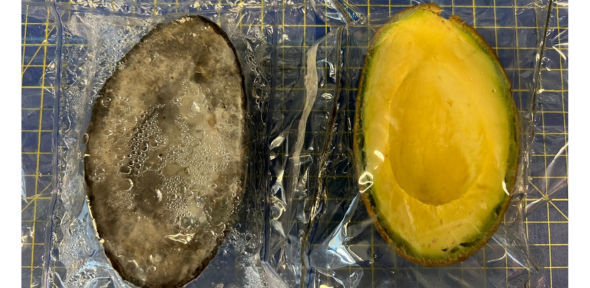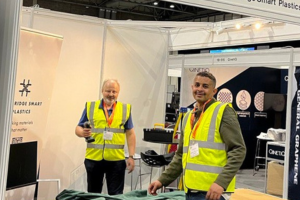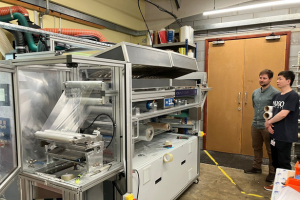
Can plastic materials be smart and intelligent? This is one of the questions that Prof. Eugene Terentjev’s research group is investigating at the Cavendish Laboratory.
Their research on polymer science is moving at fast pace to develop all kinds of plastics and make them smart and intelligent. With only one dream: to (re)design polymers for a smart and sustainable future.
The key issue that the group is trying to solve is that of plastic sustainability. The group aims to develop new materials that can potentially have better properties so that they can either be recycled, composted, or reused again and again.
In order to fulfil this ambition, a few of the core members of the research group, along with the commercial banker Andrew Terentjev, have founded ‘Cambridge Smart Plastics’ (CSP). Andrew is leading the business side of things and is responsible for commercialising this incredible research. “The spin-out came from various interactions between the academics and businesses at the Maxwell Centre, specifically about the work on bond-exchanging chemistries, or ‘vitrimers,’” shared Andrew Terentjev, the CEO of Cambridge Smart Plastics. “Dr. Mohand Saed, a post-doc in the group and a Royal Society URF, also gave us a nudge in this direction.”
Prof. Eugene Terentjev and Dr. Mohand Saed setting up the stand at the NEC
One of the materials that Prof. Terentjev and Dr. Saed have been involved in for much of their careers is Liquid Crystal Elastomers. CSP has finally found the right industrial partners, and applications, for this class of materials. “Liquid Crystal Elastomers is truly an incredible ‘smart plastic’. We call it physically intelligent, in that the material itself can do the work, and it has produced a great deal of papers and academic careers, but frustratingly it has never been used practically despite being well understood and characterised,” said Saed who is also the Chief Technology Officer of Smart Plastics. “Changing that is on our to-do list and we are pleased to have a customer who is going to carry it forward at scale.”
Rather than pushing their own tech, Cambridge Smart Plastic’s research and development efforts are fuelled by industrial pain points and seeking solutions for them. For example, plastic packaging today is lined with metals or chlorinated plastics which makes it nonrecyclable. CSP’s flagship technology, sustainably sourced biodegrading polymer, looks at improving today’s packaging (for food and other products). It blocks oxygen and water moisture transmission and improves the recycling and sustainability of plastic packaging.
CSP, has recently been listed as one of the #21towatch for in 2023, a dedicated campaign to showcase and highlight the lesser known companies from Cambridge and East of England that are setting global standards in innovation and entrepreneurship. As an organisation CSP believes in the combination of its insightful research on one hand and its business model on the other as its key strengths. This gives CSP the confidence to create completely plastic-free packaging made of biopolymer or coated onto paper or similar green substrates.
“There is potential to make every plastic recyclable, reusable, or compostable when there is no more use,” said Prof. Eugene Terentjev, professor of polymer plastics at the Cavendish Laboratory and CSP’s chairman, co-founder and chief scientific advisor.
“This is essential if we are to find a balance with our natural environment, and also maintain our quality of life and rate of progress. In polymer materials, there can be a 10-20 year lag between universities’ research and industry adoption. CSP is looking at closing this gap, which is a great way to realise the value created in academic research.”
Andrew Terentjev and Shenghui Hou (another CSP associate) conducting a semi industrial trial coating “I doubt that you will see our name and branding in the marketplace, but we will do our part to slowly, product by product, make the plastics around us a little more green; making the world move towards a sustainable future,” said Andrew Terentjev.
Next steps for CSP are going to be gradual, beginning with some modest scale-up and semi-industrial trials to prove the materials work in practice. Once completed and proven in principle, that is when they hope big partners will come in and licence or buy the polymer technologies. For the biopolymer packaging, however, CSP hopes to keep the production in-house. "Perhaps CSP will “graduate” the Cavendish in the next few years and find themselves in an Industrial Park nearby," said Eugene Terentjev.
Image Credit: Cambridge Smart Plastics
Main Image: Here we see two halves of an avocado, aged for one month. Both are bagged in plastic, but one stayed fresh due to a coating of CSP product.


